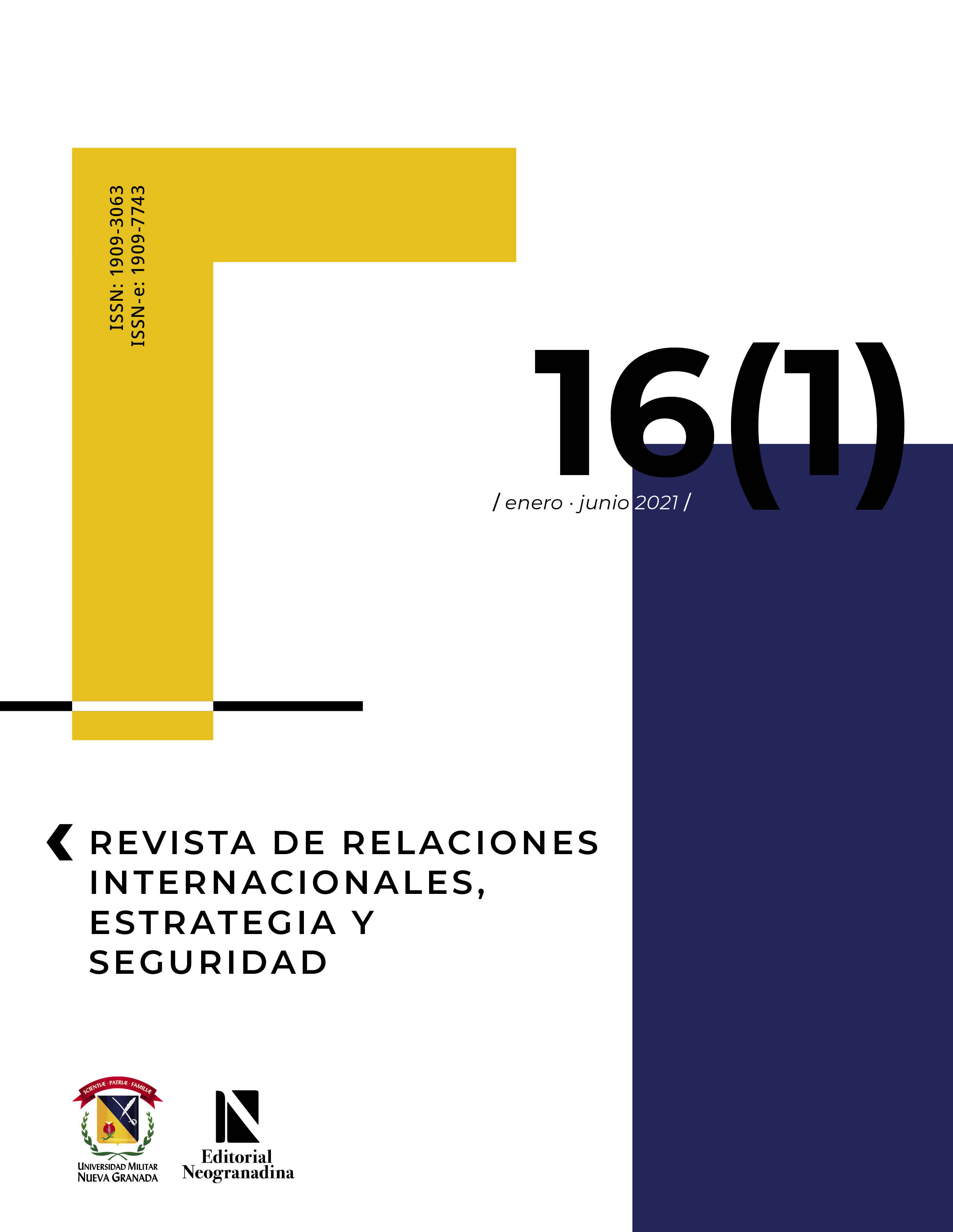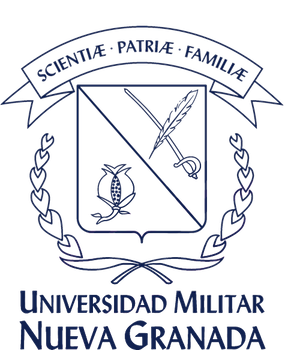The Anglophone crisis in the Republic of Cameroon and the inaction of African conflict resolution mechanisms
The inaction of the African conflict resolution mechanisms in the Cameroon crisis
Abstract
The present work discusses the actions of African regional and subregional agencies in search of a solution to the crisis in the Republic of Cameroon since 2016. It also presents the elements that have led to the transformation of the Organization for African Unity into African Union and the main differences between these agencies. The processes of creation and evolution of the Economic Community of Central African States and the Economic and Monetary Community of Central African States and the emphasis of their action in attempts to ensure the stability of Central Africa is analyzed here, as well as studying the crisis in Cameroon, which identifies the main elements that led to its emergence, which also takes its evolution to be questioned. It is clear that, regarding the existence of regional and subregional institutional structures, aimed at the treatment of cases related to this nature, they have not exercised their prerogatives and fulfilled their responsibilities, which poses a significant threat of setback in terms of the African security landscape.
Downloads
References
Adebajo, A. (2013). The curse of Berlin: Africa after the Cold War. Oxford University Press.
African Union (AU) (2018a, 9 out.). African union election observation mission to the 7 October 2018 presidential election in the Republic of Cameroon. https://au.int/sites/default/files/pressreleases/35142-pr-final_preliminary_statement_-english_version-09_oct_2018.pdf
African Union (AU). (2018b, 16 jul.). Readout of the visit of the Chairperson of the African Union Commission to Cameroon. https://au.int/en/pressreleases/20180716/readout-visit-chairperson-african-union-commission-cameroon
Agwanda, B., Nyadera, I. N. e Asal, U. Y. (2020). Cameroon and the anglophone crisis. Em O. Richmond e G. Visoka (eds.), The Palgrave Encyclopedia of Peace and Conflict Studies (pp. 1-11). Palgrave Macmillan, Cham.
https://doi.org/10.1007/978-3-030-11795-5_115-1
Akokpari, J. e Ancas, S. (2014). The African Union and regional economic communities: A partnership for peace and security? Em T. Murithi (ed.), Handbook of Africa's International Relations (pp. 73-81). Routledge.
https://doi.org/10.4324/9780203803929-8
Amnesty International (AI). (2018). A turn for the worse: Violence and human rights violations in Anglophone Cameroon. https://www.amnesty.org/en/documents/afr17/8481/2018/en/
Apuuli, K. P. (2018). The AU's peace and security architecture: The African standby force. Em T. Karbo e T. Murithi (eds.), The African Union: Autocracy, diplomacy and peacebuild in Africa (pp. 149-182). I.B. Tauris.
https://doi.org/10.5040/9781350988422.ch-007
Awasom, N. F. (2000). The reunification question in Cameroon History: Was the bride an enthusiastic or a reluctant one? Africa Today, 47(2), 91-119.
https://doi.org/10.1353/at.2000.0027
Badmus, I. A. (2015). The African Union's Role in peacekeeping: Building a lesson learned from security operations. Palgrave Macmillan.
Balla, N. F. A. (2017, 2 nov.). The Cameroon Anglophone crisis: Examining escalation and seeking solutions. https://www.chathamhouse.org/event/cameroon-anglophone-crisis-examining-escalation-and-seeking-solutions
Cameroon crisis: Ambazonia separatists get life sentences. (2019, 20 ago.). BBC. https://www.bbc.com/news/world-africa-49406649
Cameroon elections: Polls overshadowed by boycott, separatist violence. (2020, 9 fev.). Deutsche Welle. https://p.dw.com/p/3XVT1
Cameroon holds first peace talks with main separatist group. (2020, 4 jul.). Al Jazeera. https://bit.ly/39KGKA3
Cameroon: African Union endorses Swiss mediation to end Anglophone crisis. (2019, 27 jul.). Journal du Cameroun. https://www.journalducameroun.com/en/cameroon-african-union-endorses-swiss-mediation-to-end-anglophone-crisis/
Cameroon's ruling party retains absolute majority after contentious election. (2020, 28 fev.). FRANCE24. https://bit.ly/311ZS8y
Cardoso, N. e Oliveira, G. Z. (2018). Operações de paz africanas: as experiências da OUA e da UA. Brazilian Journal of International Relations, 7(2), 334-370.
https://doi.org/10.36311/2237-7743.2018.v7n2.07.p334
Central Intelligence Agency (CIA) (2019). The World Factbook: Cameroon. https://www.cia.gov/library/publications/the-world-factbook/geos/cm.html
Chazan, N., Lewis, P., Mortimer, R., Rothchild, D. e Stedman, S. (1999). Politics and Society in Contemporary Africa. Lynne Rienner Publishers.
https://doi.org/10.1007/978-1-349-14490-7
Cynthia, H. (2020). Cameroon conflict insight. Institute for Peace and Security Studies, 1. https://media.africaportal.org/documents/Cameroon-Conflict-Insights-vol-1.pdf
Dersso, S. (2014). The African Peace and Security Architeture. Em T. Murithi (ed.), Handbook of Africa's International Relations (pp. 51-61). Routledge.
https://doi.org/10.4324/9780203803929-6
Elowson, C. e Wiklund, C. (2011). ECCAS capabilities in peace and security: A scoping study on progress and challenges. Swedish Defence Research Agency.
https://www.foi.se/rest-api/report/FOI-R--3114--SE
Englebert, P. (1991). Cameroon: Background to a Crisis. CSIS Africa Notes, 130, 1-8.
Fofung, A. (2019). The Vatican wants to mediate in Cameroon's Anglophone crisis. https://www.panafricanvisions.com/2019/the-vatican-wants-to-mediate-in-cameroons-anglophone-crisis/
Fomunyoh, C. (2017, 11 dez.). Understanding Cameroon's crisis of governance. Africa Center. https://africacenter.org/spotlight/understanding-cameroons-crisis-of-governance/
Francis, D. J. (2006). Uniting Africa: Building regional peace and security systems. Ashgate Publishing.
Husted, T. e Arieff, A. (2019) In focus: Cameroon. Congressional Research Service. https://fas.org/sgp/crs/row/IF10279.pdf
International Crisis Group (ICG). (2011). Implementing peace and security architecture (I): Central Africa. International Crisis Group Africa Report, 181.
International Crisis Goup (ICG). (2017, 2 ago.). Cameroon's Anglophone Crisis at the Crossroads. https://www.crisisgroup.org/africa/central-africa/cameroon/250-cameroons-anglophone-crisis-crossroads
International Crisis Goup (ICG). (2020, s. d.). Cameroon. https://www.crisisgroup.org/africa/central-africa/cameroon
Institute for Security Studies (ISS). (2020). Peace & Security Council Report. Institute for Security Studies, 131.
Jalloh, A. (2020). Nobel Prize laureates call for Cameroon ceasefire. Deutsche Welle. https://p.dw.com/p/3eAA1
Kiven, B., Stone S. e Maclean, R. (2018). Biya wins again in Cameroon as crackdown disrupts anglophone vote. The Guardian. https://www.theguardian.com/world/2018/oct/22/paul-biya-cameroon-85-year-old-president-wins-re-election-landslide
Konings, P. (1996). Le "Problème anglophone" au Cameroun dans les années 1990. Politique africaine, 6(62), 25-64.
Konings, P. e Nyamnioh, F. (2003). Negotiating an Anglophone identity: A study of the politics of recognition and representation in Cameroon. Brill.
Le Roux, P. e Boucher, A. (2018, 26 out.). Growing Instability in Cameroon Raises Fundamental Questions about the State. Africa Center for Strategic Studies. https://africacenter.org/spotlight/growing-instability-cameroon-raises-fundamental-questions-about-state/
Maclean, R. (2019, 29 jan.). Cameroon arrests opposition leader who claims he won 2018 election. The Guardian. https://www.theguardian.com/world/2019/jan/29/cameroon-opposition-leader-maurice-kamto-claims-won-2018-election-arrested
Mays, T. M. (2003). African solutions for African problems: The changing face of African-mandated peace operations. The Journal of Conflict Studies. Fredericton, 23(1), 106-125.
Mbaku, J. M. (2004). Decolonization, Reunification and Federation in Cameroon. Em J. Mbaku e J. Takougang (eds.), The Leadership Challenge in Africa: Cameroon Under Paul Biya (pp. 31-66). Africa Word Press.
Merle, M. (1961). Les plébiscites organisés par les Nations Unies. Annuaire français de droit international, 7, 425-445.
https://doi.org/10.3406/afdi.1961.1100
Meyer, A. (2008). Regional Integration and Security in Central Africa: Assessment and perspectives 10 years after the revival. The Royal Institute for International Relations Egmont Paper, 25. The Royal Institute for International Relations.
Meyer, A. (2011). Peace and security cooperation in Central Africa: Developments, challenges and prospects (Discussion paper n. 56). Nordiska Afrikainstitutet. https://www.diva-portal.org/smash/get/diva2:442741/FULLTEXT01.pdf
Meyer, A. (2015). Preventing conflict in Central Africa: ECCAS caught between ambitions, challenges and reality (Central Africa Report n. 3). Institute for Security Studies. https://issafrica.s3.amazonaws.com/site/uploads/CentralAfricaReportNo3.pdf
Mokam, D. (2012). The search for a Cameroonian model of democracy or the search for the domination of the state party: 1966-2006. Cadernos de Estudos Africanos, 23, 85-108.
https://doi.org/10.4000/cea.533
Murithi. T. (2008). The African Union's evolving role in peace operations: The African Union Mission in Burundi, the African Union Mission in Sudan and the African Union Mission in Somalia. African Security Review, 17(1), 70-82.
https://doi.org/10.1080/10246029.2008.9627460
Mwanasali, M. (2008). From non-interference to non-indifference: The emerging doctrine of conflict prevention in Africa. Em J. Akokpari, A. Muvumba e T. Murithi (eds.), African Union and its institutions (pp. 41-62). Fanele.
Nagar, D. e Nganje, F. (2018). The African Union and its relations with Sub-Regional Economic Communities. Em T. Karbo e T. Murithi (eds.), The African Union: Autocracy, diplomacy and peacebuild in Africa (pp. 205-231). I. B. Tauris.
Nana, G. (2016). Language ideology and the colonial legacy in Cameroon schools: A historical perspective. Journal of Education and Training, 4(4), 168-196.
https://doi.org/10.11114/jets.v4i4.1385
Okereke, C. (2018). Analysing Cameroon's Anglophone Crisis. Counter Terrorist Trends and Analyses, 10(3), 8-12.
Pedneault, J. e Sheppard, B. (2018). "These killings can be stopped": Government and separatist groups abuses in Cameroon's Anglophone Regions. Human Rights Watch. https://www.hrw.org/report/2018/07/19/these-killings-can-be-stopped/abuses-government-and-separatist-groups-cameroons
Reno, W. (2011). Warfare in independent Africa. Cambridge University Press.
https://doi.org/10.1017/CBO9780511993428
Song, J. M. N. (2020). Cameroon's escalating Anglophone crisis shows little sign of abating. Deutsche Welle. https://p.dw.com/p/3eBWD
Taylor, I. (2010). The International Relations of Sub-Saharan Africa. Continuum.
Taylor, I. e Williams, P. D. (eds.). (2004). Africa in international politics: External involvement on the continent. Routledge
https://doi.org/10.4324/9780203493175
Ukeje, C. e Mvolo Ela, W. (2013). African approaches to maritime security: The Gulf of Guinea. Friedrich-Ebert-Stiftung.
United Nations High Commissioner for Refugees (UNHCR). (2018). Nigeria/Cameroon situation. UNHCR. https://data2.unhcr.org/en/documents/download/63470
Williams, P. D. (2014). War and conflict in Africa. Polity Press.
Willis, R., McAulay, J., Ndeunyema, N. e Angove, J. (2019). Human Rights abuses in the Cameroon Anglophone crisis. Oxford Faculty of Law Report. https://bit.ly/2XppCuX












